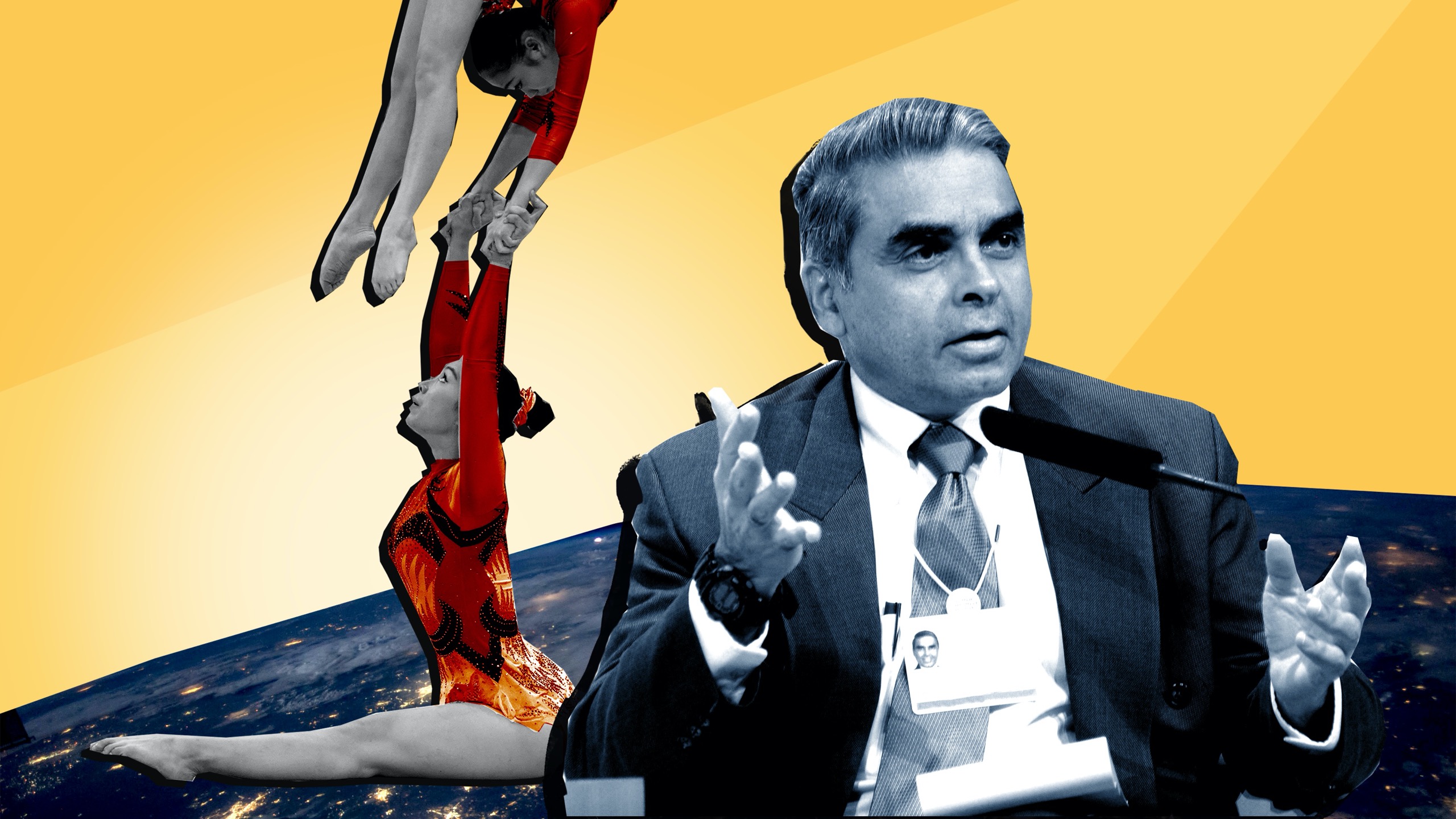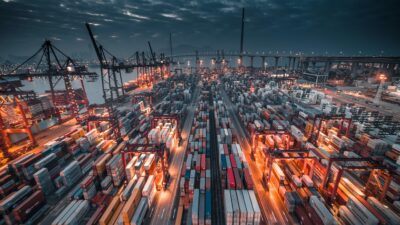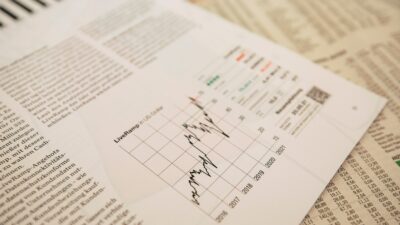Sydney Business Insights and Kishore Mahbubani

The Asian century with Kishore Mahbubani
As we enter the new Asian century, what will the choppy waters of globalisation hold? Kishore Mahbubani, Distinguished Fellow at the Asia Research Institute joins Dr Sandra Peter to discuss geopolitics and Asian influence.
Shownotes
Kishore Mahbubani at the Asia Research Institute
Kishore Mahbubani’s insight on China’s path from pandemic to economic powerhouse
Our podcast on China’s post-pandemic economic recovery
Kishore Mahbubani’s latest book, Has China Won?
Kishore Mahbubani’s earlier books, Has the West Lost It?, The ASEAN Miracle and Can Asians Think?
Francis Fukuyama’s essay, The End of History?
Amartya Sen’s paper on Adam Smith and the invisible hand
Graham Allison’s book, Destined for War
Xi Jinping’s 2017 keynote speech at the World Economic Forum
Richard Horton’s Lancet article on the US defunding the WHO
Follow the show on Apple Podcasts, Spotify, Overcast, Google Podcasts, Pocket Casts or wherever you get your podcasts. You can follow Sydney Business Insights on Flipboard, LinkedIn, Twitter and WeChat to keep updated with our latest insights.
Sydney Business Insights is a University of Sydney Business School initiative aiming to provide the business community and public, including our students, alumni and partners with a deeper understanding of major issues and trends around the future of business.
Kishore Mahbubani is a Distinguished Fellow at the National University of Singapore’s Asia Research Institute.
Share
We believe in open and honest access to knowledge. We use a Creative Commons Attribution NoDerivatives licence for our articles and podcasts, so you can republish them for free, online or in print.
Transcript
Kishore Mahbubani No European government, no American authority is coming to learn from East Asia and that I find quite shocking. And that's why I think that COVID-19 will accelerate the move towards the Asian century because the Asian countries are still learning and adapting and changing, whereas Europe and America are still not aware that they've got to make some serious structural adaptations to the new Asian century.
Intro From The University of Sydney Business School, this is Sydney Business Insights, the initiative that explores the future of business.
Sandra Hello, I'm Sandra Peter. Today my guest is diplomat turned academic and author Kishore Mahbubani, whose first book was the provocatively titled, "Can Asians Think?".
Kishore Mahbubani China has underperformed vis-à-vis the rest of the world for roughly 150 years.
Sandra Clearly, Kishore Mahbubani is not afraid to be direct.
Kishore Mahbubani I'm sorry to say this. Australia is going to have a very difficult time in the Asian century.
Sandra Mr Mahbubani says China is the first country to successfully manage the pandemic and revive its economy, in part because...
Kishore Mahbubani The quality of mind of people in the Chinese government today is among the best in the world. They've had a very determined, meritocratic system of selecting people to join the government. And so as a result of that, in contrast to say the United States, where the quality of mind of people in government has been deteriorating, since the Reagan/Thatcher revolution, where President Reagan said, 'government is the problem, government is not the solution'. So in contrast to the United States, which just under-invested and under-supported institutions of government, China has done the opposite.
Sandra Mr Mahbubani, was the first person from Singapore to sit on the United Nations Security Council, and he has twice been president of the Council. His insider position has given Mr Mahbubani a unique view into the levers of geo-political power. In his two latest books, "Has the West lost it? followed by, "Has China won?" Mr Mahbubani contends with this century's ultimate political megatrend - the rise of China. Mr Mahbubani is a Distinguished Fellow at the Asia Research Institute at the National University of Singapore. He's also a highly sought-after public commentator and speaker for his deep geopolitical insights.
Kishore Mahbubani Hello. Hi, how's the sound?
Sandra It's alright, lovely to meet you. I very much enjoyed your writings in various outlets in Foreign Policy and The Economist and so on. We've been following your thinking on what's going on.
Sandra I spoke to Mr Mahbubani from his home in Singapore, a city which was then in partial lockdown.
Sandra You've said that the pandemic will help accelerate the move to a more China-centric century. What are the implications for the rest of the world of this shift in international order?
Kishore Mahbubani The likelihood is that China will emerge stronger from COVID-19, but not just China. I would say that we look at the number of death rates per million, all the East Asian countries are much lower. South Korea, Japan, Vietnam, and if you include Australia and New Zealand as East Asian countries then Australia and New Zealand have also done a spectacular job in managing COVID-19. So it's all through East Asia. So it just confirms that the 21st century will be the Asian century. And this is again as a result of deep structural forces because the East Asian societies don't believe that they have arrived. They believe they have to continue to struggle. They live with a deep sense of insecurity, and insecurity and paranoia is a very powerful motivating factor in human behaviour. Whereas the mistake that the United States and Western Europe made, especially after the end of the Cold War, as I document in my book "Has the West lost it?", they believed that they had arrived at the end of history, to quote the famous essay by Francis Fukuyama. And sadly that essay did a lot of brain damage to the West, because it put the West, especially Europe and America, to sleep at precisely the moment when China and India were waking up after 200 years of slumber.
Sandra So if the US or if Europe were to send people to learn from China, what would they learn, for instance, about the different approach that China took to how they, let's say support individual workers or employees during the pandemic, what would they learn from the response that they have during the pandemic?
Kishore Mahbubani I think the big lesson they learned is the point that Amartya Sen, the Nobel Prize winner said. He said, for societies to succeed, you need the 'invisible hand' of free markets, and the 'visible hand' of good governance. And what's interesting is, throughout East Asia, people have not tried to undermine or weaken institutions of governance, they've tried to strengthen them. Whereas in America, especially, they believe that the 'invisible hand' is all you need, and you don't need the 'visible hand' of good governance. In fact, the word good governance is still considered by many Americans to be an oxymoron. Because government, as Ronald Reagan said, is the problem not the solution. So the very idea of good governance is something that is not understood in American society. And so as a result of that, very important, highly respected US federal agencies like the Federal Aviation Administration, the Food and Drug Administration, the Center for Disease, Prevention and Control CDC, they've all been undermined over the last 2030 years. And they perform very badly in response to the recent crisis. So clearly, they've got to reinvest in institutions of governance, and pick the best people, not to go in Wall Street, but to go and work in the US government agencies. And that's exactly what East Asia has done. And that's what America is not doing even today.
Sandra So do you think there's a part of the strengths of China and other East Asian countries coming out of the pandemic, their ability to rely on very strong government organisations, but also on international ones? We've seen the US withdraw support, not only in terms of their national institutions but also international ones, from NATO to the World Health Organisation to, they'll pick a new one every other week, but is this part of China's strength coming out of the pandemic?
Kishore Mahbubani Yeah, I would make a distinction, by the way, it is a very important distinction between the attitude of the United States and the attitudes of the European countries. When it comes to multilateralism, when it comes to institutions of global governance, Europe still believes that you need strong institutions of global governance. Europe still believes in multilateralism, in fact, the most eloquent spokesman in support of multilateralism in the world today is President Macron of France. So when the United States, for example, recently left the World Health Organisation, which as Richard Horton, the editor of The Lancet said, the US withdrawal from WHO was a crime against humanity, because the poor countries in the world really need the World Health Organisation to deal with COVID-19. And to leave the World Health Organisation is going to really hurt the poor countries more than anybody else. But what's interesting is that not a single European country left the World Health Organisation after the United States did so. So this is where actually there is a convergence between East Asia and Europe, that the world needs stronger global multilateral institutions. Indeed, one of the best speeches on the importance of global multilateral institutions was given by President Xi Jinping in Davos in January 2017. And I was actually present in the room when Xi Jinping gave his speech. And I think that speech indicates a very deep commitment by China to strengthen these global multilateral institutions.
Sandra We've spoken quite a bit about China's strengths before the pandemic, some structural advantages that it had, I want to think a little bit about its vulnerabilities or where are places were in the recovery from the pandemic, what are places where China could encounter difficulties?
Kishore Mahbubani China's relations with some of his neighbours has gone down in the past year. So it has gone down with Australia. It has gone down with Canada, it has gone down with India. So I think China has got to sit back and ask itself what it can do to stop this slide in its relations with its neighbours and try and figure out ways and means of overcoming this. Because right now, as you know, in my book, "Has China Won?", I've documented how a major geopolitical contest has broken up within the US and China. And that will be the defining force in global geopolitics for the next 10 to 20 years, the US/China geopolitical contest. And the best way for China to manage this geopolitical contest is to improve its relations with other countries in the world. And that's what China was doing for a long time. But now recently, there have been some setbacks, and China's got to figure out what to do about the setbacks.
Sandra Do you think given the risk of de-globalisation, the risk of the US slowing down and Europe slowing down, there is a chance that China will become increasingly internally focused, or will it continue on the path that was before the pandemic?
Kishore Mahbubani Oh, I think China will definitely carry on with the path of engaging and integrating itself with the rest of the world. Because the Chinese have studied very deeply why they suffered a century of humiliation. And to put it very simply, it's a complicated answer. The simplest answer is that China built walls to block out the world, while the West was engaging itself with the rest of the world. And so the Chinese have learned that the biggest mistake they made was to build walls, and so China will never again build a Great Wall of China. China realises when they built a Great Wall of China, it doesn't protect China, it keeps the world out, and therefore weakens China. And China, to remain strong, must remain open to the rest of the world and open to competition. And if you read the speech that Xi Jinping gave in Davos, he has a wonderful paragraph in the speech where he said that, for China to succeed, it had to dive into the choppy ocean of globalisation. And when it dive into the choppy ocean of globalisation, it had to struggle, it swallowed water, and life was difficult. By the end of the day, China became a stronger swimmer after that. And by contrast, India has not jumped into the choppy ocean of globalisation as much. And so India is not as strong a swimmer in global competition. So the Chinese realised that, you know, in 1980, the Chinese economy and Indian economy was about the same size. And today's China's GNP is five times the size of India. But why is it five times the size of India? Because China jumped into a choppy ocean of globalisation and learn to compete and struggle. And so they will not give up the lessons they learned from jumping into the choppy ocean of globalisation.
Sandra We talk a lot in the press and in public discourse, we talk a lot about what China should do. What should the rest of us do? What adjustments do we need to do to a globalisation that's got a much more prominent China?
Kishore Mahbubani Well, I mean, it's very simple. You know, I've been talking to you for one hour. And when I started the conversation with you next to me in the corner, there's a small cat, and a very happy cat, and I've left the cat alone. But after talking to you for one hour, the cat I notice, has become a tiger. Then everything changes, the chemistry of the room changes, I've got to be much more wary, I've got to be much more careful, right? A tiger is different from a cat. So China has gone from being a cat to it's becoming a tiger. In the same small room. Its GNP in PPP terms was one 10th the size of United States in 1980. Now it's bigger than United States. So we have to deal with the reality of Chinese power, you know, just as the world adapted to the American century, right? The world adapted to it, because America was the number one power. And if you went against American wishes, you were punished. In fact, Graham Allison said in his book, "Destined For War", Americans keep saying, 'why can't China be like us', he said, 'Be careful what you wish for.' When America became number one, it immediately launched wars, it launched wars against Spain, it conquered Philippines, conquered Guam and conquered Cuba. But he says fortunately, as of now, China has not behaved like the United States of America, and so has not actually used military means to exercise this power. So we should encourage China to not use military means. We should encourage China to keep on using other means. And we have to adjust to Chinese power, you have to accept it. This is the reality of geopolitics. And I studied geopolitics for 50 years in my life, and the biggest lesson of geopolitics is that whenever a great power emerges, everything changes. And you cannot say, 'Oh, that's the world I got used to before, I'm going to live with that world', that world is gone. It's a different world. And so, like the ASEAN states, you know, I wrote a book called "The ASEAN miracle", I've said, ASEAN countries have to adjust to Chinese power. It's a new reality. You can't put China back in the box again. You cannot ask the tiger to become a cat again, cannot. So you have to deal with a new animal on the world scene, and I think it's better for us to encourage China to try and maintain this pattern of peaceful rise, and not change. Because the worst thing that could happen is for China to behave like the United States of America in the early phase of emerging as a power, then it's a much more turbulent world.
Sandra What do you think is important for Australia to do? You know, there are increasing tensions between Australia and China being debated in various parts of the economy, trade, foreign relations and so on. Where does this leave Australia?
Kishore Mahbubani Australia is going to have a very difficult time in the Asian century. I'm sorry to say this, but it's a reality. Because Australia has been a lucky country. It has been, in a sense, the last outpost of Western civilization in Asia. And so it has benefited enormously from the 200 years of Western domination of world history, because Australia was a member of the most successful civilization on planet Earth. Now, West will still remain strong. But the West will no longer be the single dominant civilization, we will go from what I call a mono-civilizational world with one strong civilization, Western civilization, to a multi-civilizational world, with many successful civilizations. So Australia, psychologically, has got to accept that it is a multi-civilizational world. And it has to deal with other successful civilizations in a way that Canada will not have to do so. Canada will always be protected by the United States of America. Always. Because it's right there, it's geographically linked to United States of America, Australia is very far away. Australia will have to adjust and adapt to Chinese power and live with that reality. And so it means a psychological adjustment first, before you carry out your other adjustments. So for example, to give you a simple example, how many of your schools are teaching Bahasa Indonesia, how many are teaching Mandarin? How many are teaching French and German or other European languages? Simple tests. And then you'll know whether or not you're adjusting to the Asian century.
Sandra So let me thank you so much for the time you spent with us today. I do hope we can follow up on some of these questions. There's so many more things I would love to ask you.
Kishore Mahbubani Sure. Thank you.
Outro Sydney Business Insights is an initiative from The University of Sydney Business School that explores the future of business. Additional resources are available at sbi.sydney.edu.au. This episode was produced by Jacquelyn Hole, edited by Megan Wedge and supported by the Sydney Business Insights team. Connect with us on LinkedIn, Twitter and Flipboard, and subscribe wherever you get your podcasts.
Close transcript







